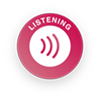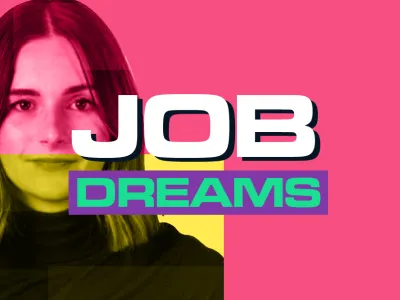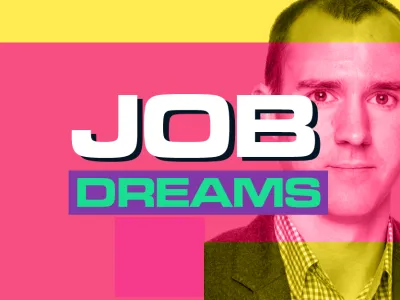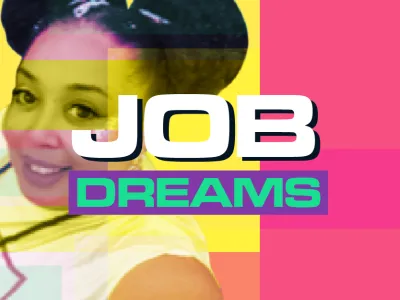
Clinical Psychologist, Catherine
Include this article in your Skills Builder Journal. It could help you develop... 


This month we’ve had Mental Health Awareness Week, so we thought it would be fitting to speak with a Clinical Psychologist for our Job Dreams series. Over to you, Catherine!

What do you do?
I’m a Trainee Clinical Psychologist employed by the NHS while completing a Doctorate in Clinical Psychology.
Are there different types of Clinical Psychologists?
Everyone completes a Doctorate in Clinical Psychology to qualify as a Clinical Psychologist and this covers psychology across the life span. You complete core placements in adult mental health, older adult mental health, child and adolescent mental health and neuropsychology.
However, your role is shaped by where you work and your interests. I want to work with children and young people and there is such a variety of roles. I could work on an inpatient mental health ward, a community mental health team, a mother and baby unit, within clinical health psychology services at a hospital, in schools, or even in forensic settings.
Can you tell us what your day-to-day is like?
I’m on my final placement working in a Clinical Health Psychology Service at a children’s hospital. While I’m on placement I work across three teams: Rheumatology, Diabetes and Chronic Pain, and support children with related health conditions and their families.
I’m currently on placement three days a week and offer therapy sessions with young people. We discuss the impact of their health condition to try and better understand it and practice ways of managing it to improve their quality of life. I go to team meetings with doctors, psychiatrists, nurses, physiotherapists, occupational therapists and health assistants, to develop care plans for young people and their families.
I attend ‘supervision’ with my placement supervisor who is a qualified Clinical Psychologist and we discuss my work and personal and professional development. I also catch up on admin, writing up notes, reflections on a therapy session, or letters to young people and their families. When I’m not on placement I’m completing academic work, and currently finishing my thesis.
What do you love most about your job?
I love meeting young people and their families, hearing their stories and developing a connection. Despite the considerable difficulties young people and their families face, they are incredibly resilient which is inspirational. Young people tend to cut through the bullsh** and the work is playful and creative. It requires a good sense of humour!
What do you find most challenging?
When I’m working with people who face incredible hardship due to social inequality. It makes me feel incredibly angry and can lead to a sense of hopelessness. Mental and physical health vastly improve when societies are more equal (read The Spirit Level by Pickett and Wilkinson

What did you see yourself doing when you were a kid?
I wanted to be a Marine Biologist because I love swimming and was obsessed with whales and dolphins! But I didn’t really apply myself in science at school… Later on, I thought about being a primary school teacher or a nurse because I like people and helping others.
What challenges did you face in reaching where you are today?
Becoming a Clinical Psychologist can be a long haul! My first job was as a support worker on an adult inpatient mental health ward in a small village in Essex – I knew no one.
Since then I’ve completed post-graduate courses in Developmental Psychology, Graduate Mental Health Work and as a Psychological Wellbeing Practitioner. I haven’t stayed in one job for longer than a year, so have had to become very adaptive! Saying that, I wouldn’t change it. I’ve loved meeting so many interesting and inspiring people over the years, and I’ve had a lot of fun.
Many people apply for the Clinical Psychology training programme several times and don’t get an interview, there is huge competition for a limited number of places. Then if you get on, it can be a tough three years of personal and professional development.
Where do you see yourself going next?
Working as a qualified Clinical Psychologist with children and young people, perhaps in a Clinical Health Psychology setting or with parents and babies during the early years, to strengthen attachment and bonding.

What do you know now that you wish you’d known when you first left school?
Don’t be afraid to be yourself, follow and develop your interests when possible and listen to your gut. Make the most of opportunities when they arise and enjoy the ride, things will work out in the end. It’s all about relationships and meaningful connection (with yourself and others)!
What advice would you give to someone interested in joining your industry?
Be prepared for the long-haul and keep your options open, there are many different roles within mental health. Also, take your time, get to know yourself, develop interests unrelated to Clinical Psychology.
What’s the best piece of professional advice you’ve been given?
Humility is a virtue, but self-doubt is limiting.
What quote do you live by?
“Ever tried. Ever failed. No matter. Try again. Fail again. Fail better”. Samuel Beckett.




